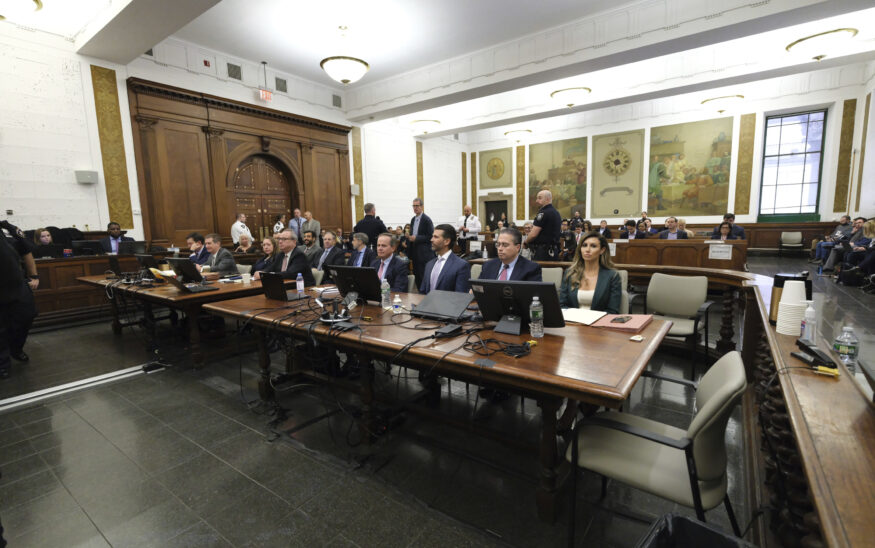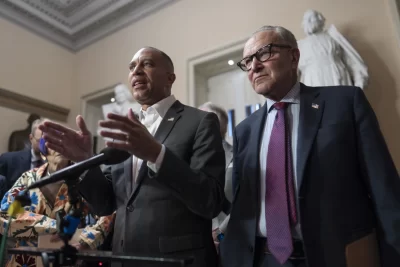
Donald Trump blamed his accountants. So did the two sons he entrusted to run his company. Now, as they mount their defense in the civil fraud trial threatening the former president’s real estate empire, his lawyers are too.
Trump’s lawyers spent Tuesday digging into outside accounting firm Mazars USA LLP’s role in preparing financial statements at the heart of New York Attorney General Letitia James’ lawsuit, upping the blame with expert testimony from a former federal financial regulator.
Jason Flemmons, testifying as an accounting expert, questioned some of the firm’s practices and raised doubts about earlier testimony from Donald Bender, the retired Mazars partner who spent years working on Trump’s financial statements.
Bender, the first witness called by state lawyers, testified Oct. 3 that he’d asked a Trump Organization executive for all of the company’s property appraisals — not just ones used for the financial statements — and that he was surprised when he learned years later that some hadn’t been turned over.
Flemmons, a former deputy chief accountant at the U.S. Securities and Exchange Commission, said Bender’s claim was “not professionally plausible” because such diligence isn’t required under professional accounting standards.
In preparing financial statements, also known as compilations, accountants need only documentation used to determine the value of assets, like Trump’s skyscrapers, golf courses and other properties.
In Trump’s case, Flemmons said, his company determined the numbers and met the requirements by providing justification for them and explaining instances where it used different standards to determine a value, which is permitted. Flemmons, who will return to the stand Wednesday, has not been asked to address the state’s specific claims that Trump executives used a variety of methods — sometimes misclassifying properties — to attain the highest values.
“There would be no obligation or expectation on the part of Mazars or any accountant performing compilation services” to request appraisals that weren’t the basis for values on the statements, said Flemmons, now a senior managing director at Ankura Consulting Group.
A message seeking comment was left for Mazars. The firm cut ties with Trump last year and said his financial statements “should no longer be relied upon” after James raised concerns about their accuracy.
Flemmons testified on the second day of the defense’s case as Trump’s lawyers seek to refute the state’s claims that the 2024 Republican front-runner, his company and top executives manipulated the value of his assets to make him look wealthier and his properties more successful than the actually were.
James, a Democrat, alleges Trump, his company and top executives exaggerated his wealth by billions of dollars on the financial statements by inflating property values. The documents were given to banks, insurers and others to secure loans and make deals. James is seeking more than $300 million in what she says were ill-gotten gains, and she wants the defendants banned from doing business in New York.
Before the trial, Judge Arthur Engoron ruled that Trump and other defendants committed fraud by exaggerating his net worth and the value of assets on his financial statements. The judge imposed a punishment that could strip Trump of some marquee properties, though an appeals court is keeping them in his control for now.







